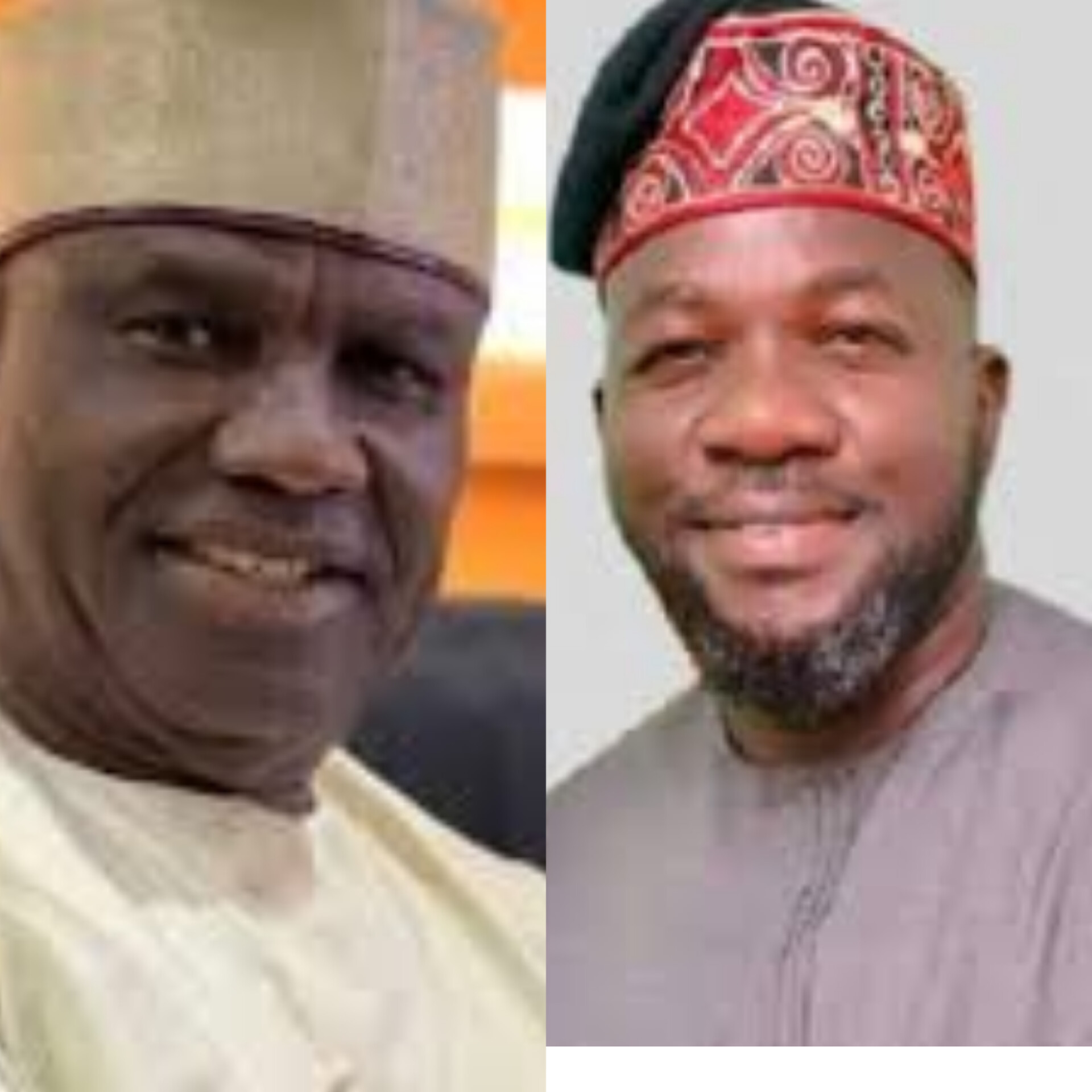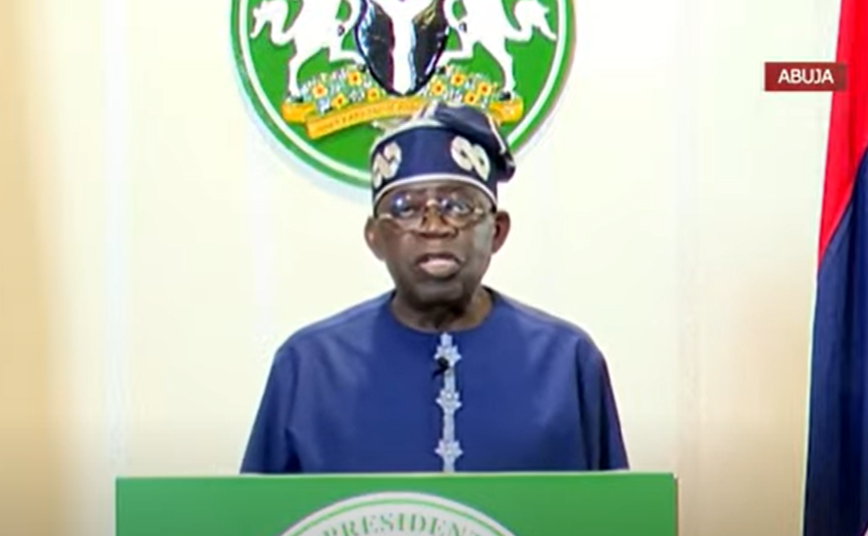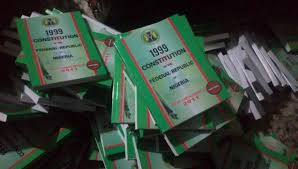***Threaten to sue the Senate
Lawyers for Reform Group (LRG) have threatened to sue the Nigerian senate over its complicity and compromise in their petition against the Executive Director of Nexim Bank, Stella Okotete.
Barrister Oladotun Hassan and Myson Nejo, almost turned the Senate hearing room for its Committee on Ethics, Privileges and Public Petition into a chaotic arena recently when they engaged the chairman of the Committee, Senator Ayo Akinyelure in a shouting match for holding brief for the respondent.
Their grouse was that senator Akinyelure invited them to appear before the panel when he was aware that the NEXIM ED was out of the country and would not honour the invitation.
Even before hearing from the petitioners Akinyelure in his opening remark had stated that, “The President is free to appoint whoever he wishes into whatever position. This appointment is that of a Development bank that doesn’t require certificates.”
He added that “Mortgage and development banks can even be run by a primary six holder, unlike the commercial banks that require a lot of professionalism.”

Akinyelure further added that he is a Chartered Account and was therefore speaking from knowledge.
Senator Akinyelure further explained to them, “Since the case was already in court, the Senate might not be able to formally hear the case.
“The case is already in court but the reason I didn’t discharge the case is that I am not sure if that’s why she is here or not. She told me that she is on medical leave abroad.
“I magnanimously allowed that the case be heard. Let us wait till she comes and we would and we would hear from both parties. And if the court papers are presented before us to show that the case is in court, then we will let you go to the court to handle the case.”
The Senator also indicated that the Nexim bank ED sent a text message to the panel to inform them that she would not be available to attend the meeting as she was currently out of the country.
His arguments and positions did not go down well with the petitioners who started shouting accusing the panel of bias and lacking in transparency.
The duo had sent a petition to the National Assembly through Akinyelure, Chairman Senate Committee on Ethics, Privileges and Public Petition to look into the issue of the appointment of the ED of Nexim Bank.
The petition filed by Hassan and Nejo demanded for a reversal of Okotete’s appointment stating that she was not qualified to hold such a position.
The petition reads, “Public complaint against criminal conspiracy to wit: unimplemented 2019 senate resolution on removal recommendation, violation of the CBN’s circular to all banks and financial institutions revised assessment criteria for approved persons’ regime for financial institutions ref; fpr/dir/cir/gen/05/014 dated 15th October 2015.
“And regulations on appointment of heads of financial institutions, serial fraudulent misrepresentations on prerequisite qualifications and deceitful withholding of CBN’s statutory position, obligations and duties as the executive director of the Nigerian Export-Import Bank against Stella Erhuvwuoghene Okotete.”
It added, “Given her lack of educational academic prerequisites and 18 years of banking service years of experience, non-professional technocratic competence and ongoing massive corruption at the Nexim bank, hence our clarion calls for her immediate replacement.”
One of the petitioners, Nejo retorted, “We don’t see the reason for coming here because you have already taken sides, defending the woman.
“If you say that the case is already in court, then you don’t need to say all of these.”
“If the Senate has done its job by monitoring things and the Central Bank of Nigeria did things rightly, there will be no need to be writing a petition.
“But things are not going in the proper manner and we have gone the extra mile to send a petition and the Senator is defending the woman, I am no longer interested in bringing this case before you.
“What we have heard from you shows that you will not give us a fair hearing because you are even telling us that the president is free to appoint whoever he pleases to appoint without the need for any certificate.
“We are telling you that we don’t want you to hear this case anymore, Mr Chairman, you’re biased sir! This is highly disappointing,” he added.
Nejo’s co-petitioner, Hassan demanded that Senator Akinyelure apologises to Nigerians or he would also sue the Senate.
He said, “ The President must have been misled over the appointment of Stella Okotete because he wouldn’t want to take Sin qua non the position of the chairman Senate Committee on Ethics and Privilege, Senator Ayo Akinyelure that further endorsed corruption. Giving corruption a bite is to put us back.
“We believe that we are supposed to be in a place where we would be moving forward but this decision in a Senate is the opposite.
“The Senate is the hope of the commonman even more than the court,” he added.
Hassan said their job was just to make the legislature see to it that the Senate resolution that was duly passed is followed through.
He added, “All we just came here for is to remind them that this was a statutory position based on a constitutional appointment by the president of the country through the Secretary-General of the Federation that do the needful,
“It shows great disrespect for us to have come from Lagos and Ondo states and we get here then you’re informing us that the other party is not here based on a text message.”
He added, “The Nexim bank is just here in Abuja but no one showed up and the senator raised the defence in absentia of the respondent.
“That shows bias, the Senate needs to apologise to us. If the Senate fails to do so, we as citizens will take the Senate on that the Senate is a total disappointment.
“We are giving the Senate through its committee on Ethics, privilege and public petition to apologize on behalf of their chairman.”
“If they fail to apologise, we will take them on as co-accomplice in our petition and if they remain a co-accomplice, it’s a huge stain on the Senate,” the lawyer added
He also reemphasized, “Senator Akinyelure has said that the position of the Nexim bank ED is a political appointment and a primary six holder even a non-educated person can be appointed.
“He even said that the Federal Mortgage Bank was once headed by a primary six holder. These are institutions that deal with finances.
“The Nexim Bank is a development bank that deals with both local and foreign investments that hold this nation in high repute.
“If someone that is not competent is therefore appointed into such positions and we have come here to present the case.”
He noted that bringing the case before the senate was not to prejudice the court but as a result of mutual respect.




